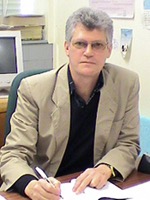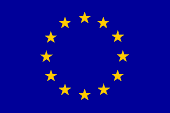
Prof. Peter Wills will contribute to the genetic coding of MICREAgent functionality, establishing a basis for encoding electronic-chemical information transfer. He is planning to strengthen the theoretical and computational aspects of the project with NZ funding. NZ is also an explicitly desired partner for this call.
Peter Wills began his scientific work in the field of physical biochemistry, studying applications of quasi-elastic light scattering to the investigation of macromolecules in solution. He then branched out into aspects of biophysical theory, especially the thermodynamics and statistical mechanics of macromolecular diffusion and sedimentation. This work was complemented with experimental investigations. His work in this area continues in collaboration with Prof. Don Winzor of the University of Queensland.
For about a decade, starting in the early 1980s, Peter Wills investigated theoretical aspects of diseases known as spongiform encephalopathies. Dr Carleton Gajdusek recognised him as an early advocate of the prion hypothesis and invited him to the US National Institutes of Health to pursue his studies there. The prion hypothesis now underpins the standard view of the tiology of these diseases. He remains interested in prions and their mode of replication.
Since working for a year in the laboratory of Manfred Eigen in Göttingen, Peter Wills has contributed to theories of the origin of life, especially the origin of genetic coding. Partly in collaboration with Dr Stuart Kauffman at the Santa Fe Institute, he has applied ideas about the accumulation of information in macromolecular systems to the study of autocatalytic networks. He has further extended these ideas to self organised systems in a critical state. His most recent collaborations are with Kay Nieselt in Tübingen, Peter Stadler in Leipzig and John McCaskill in Bochum.
Throughout his career Peter Wills has been a commentator on issues concerning the relationship of science and society. He was an active participant in debate about weapons of mass destruction during the Cold War and is now involved in discussions about pharmaceutical and agricultural applications of genetic engineering, especially its regulation. This work has often placed him in the midst of political dispute, including the discussion of matters concerning the Treaty of Waitangi.

